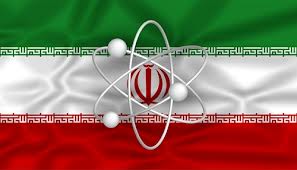 0735 GMT: The Battle of the Nuclear Spin. Earlier (see 0635 GMT) we noted a sign that Western diplomats are trying to take any sense of crisis out of the nuclear issue, with talks next week in Kazakhstan.
0735 GMT: The Battle of the Nuclear Spin. Earlier (see 0635 GMT) we noted a sign that Western diplomats are trying to take any sense of crisis out of the nuclear issue, with talks next week in Kazakhstan.
Not so fast.
If Fredrik Dahl of Reuters was fed the not-so-new story that Iran is converting its higher-enriched uranium to fuel plates for civilian-only use, George Jahn of the Associated Press has been given this script:
In a disheartening signal to world powers at upcoming Iran talks, Tehran has started installing high-tech machines at its main uranium enrichment site that are capable of accelerating production of reactor fuel and — with further upgrading — the core of nuclear warheads, diplomats said Wednesday.
In fact, as we noted repeatedly last week, the new centrifuges --- which replace 40-year-old machines at the Natanz plant --- are only for the production of 5% uranium, not even the 20% uranium that concerns the US and Europe.
Jahn, however, does not seem aware of this, as he puts out --- in contrast to Reuters' reassuring story --- the gloomy "analysis":
The start of the centrifuge upgrade at Natanz, Iran's main enrichment site southeast of Tehran, flies in the face of world-power efforts to induce Iran to scale back on enrichment. As such, it is likely to hurt chances of progress at Feb. 26 talks in Kazakhstan between the two sides — adding to a string of negotiating failures.
0645 GMT: Scare Story of the Week. Haaretz reports:
Nigerian security forces uncovered an Iranian terror cell that was allegedly planning to launch attacks against Israeli and American targets in the city of Lagos, Nigerian authorities said Wednesday.Three members of the cell were arrested by security forces. The leader, Abdullahi Berende, a 50-year-old Shiite Muslim Nigerian citizen, was arrested on December 12, 2012, after six months of surveillance. Two other members --- Sulaiman Saka and Saheed Adewumi --- were also arrested. The fourth member of the terror cell, Benyamin Yosuf, managed to escape.
The spokeswoman of the Nigerian police said Wednesday that the cell was planning to carry out an attack on the offices of USAID, as well as on the offices of the Israeli container shipping company Zim, and on the Jewish cultural center in the city of Lagos, which is considered the financial capital of Nigeria.
But is the story really that scary and really that Iranian? We will have analysis later this morning.
0635 GMT: Nuclear Watch. Whether or not the supposed new offer from the West has "significant new elements" (see 0600 GMT), its diplomats are putting out the line --- markedly difference from three months ago --- that the situation over Iran's nuclear programme is not critical.
Reuters benefits from the latest spin:
A U.N. nuclear watchdog report due this week is expected to show that growth of Iran's stockpile of higher-grade enriched uranium has slowed as it is using some of the material to make reactor fuel,If confirmed in the quarterly report, the development could help buy time for big power diplomacy to try and find a negotiated settlement to a decade-old dispute that has stirred fears of a new Middle East war.
The "news" is actually quite old. Last summer, the International Atomic Energy Agency found that Tehran had converted more than 40% of its stock of 20% enriched uranium to fuel plates, which can only be used in civilian programmes.
Earlier this month, after a period of playing up the possible military threat, diplomats put out the line that the conversion had resumed.
What is significant here is the timing, with the supposed revelation coming only days before the 5+1 Powers meet Iran in Kazazhstan.
0600 GMT: Nuclear Watch. Reuters featured the news last night, from an unnamed "Western diplomat", that the 5+1 Powers (US, Britain, China, France, Russia, and Germany) will make an offer with "significant new elements" to Iran over its nuclear programme next week.
The 5+1 Powers and the Islamic Republic meet in Kazakhstan next Tuesday in the first high-level talks in eight months.
"We will take an offer with us which we believe to be a serious and substantial offer," the Western diplomat said in London. "This is an offer which we think has significant new elements in it."
Earlier this week, Washington indicated that it would remove sanctions against transfer of gold and precious metals to Iran, in return for Tehran's move away from enrichment of 20% uranium and closure of its Fordoo plant.
I was dismissive of the signal since the sanctions were imposed less than two weeks ago I believed that Iran would see the proposal as a cynical American attempt, putting on and then removing punishing measures to get one-sided Iranian concessions.
So will this new offer be any different? The diplomat --- speaking in London, is he British? --- refused to give any specifics. He also "played down the chances of an immediate breakthrough": "We are approaching the talks with a sense of urgency but this is not necessarily a sprint."
Thus, back to the basic analysis I offered on Tuesday. Both the 5+1 and Iran are gathering in Kazakhstan next week to give the appearance that talks have not broken down, thus holding off any push for military action against Tehran. Any serious discussions will be in the autumn.
Posted via email from lissping
No comments:
Post a Comment
Note: only a member of this blog may post a comment.